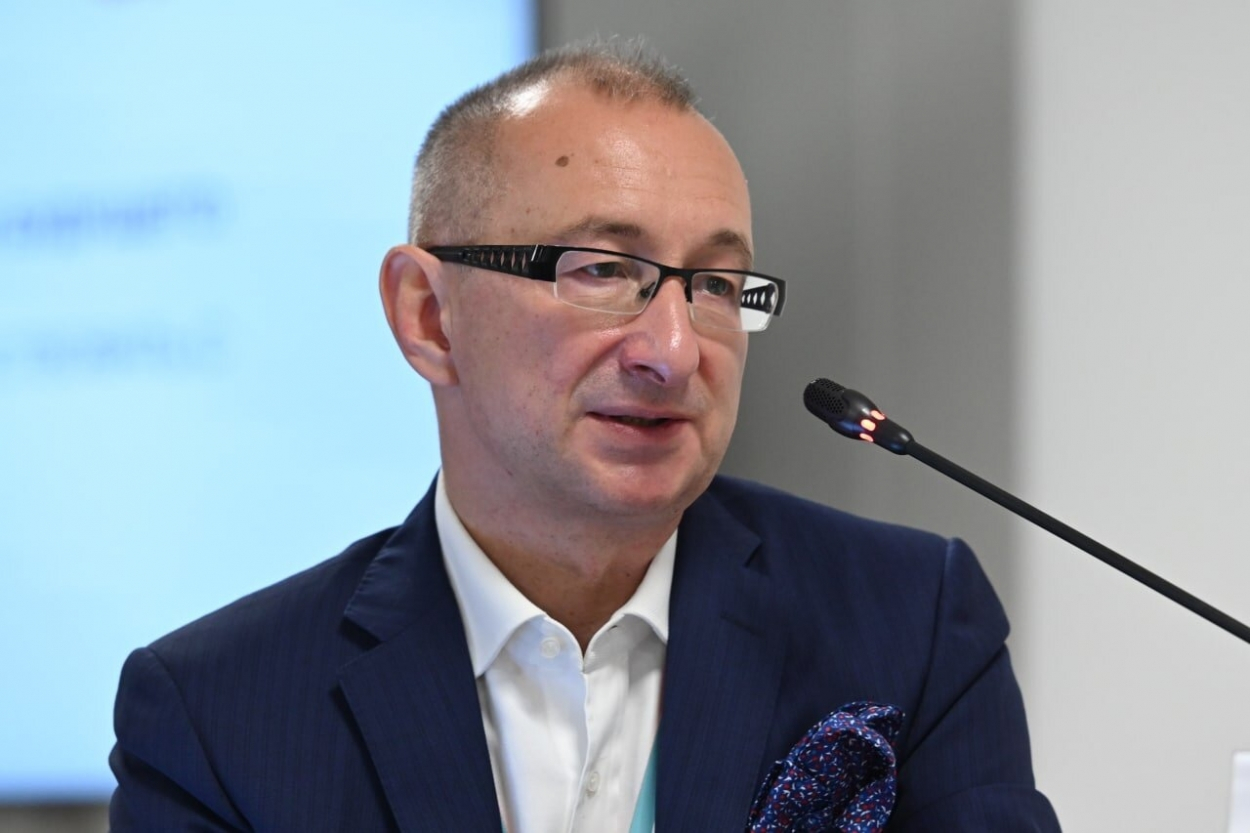An expert from St Petersburg University speaks about how people are trained for the digital transformation of industry in the field of distributed ledgers

Viktor Dostov is Director for Research of the Distributed Ledger Technologies Centre at St Petersburg University and Chairman of the Russian Electronic Money and Remittance Association. He spoke about: how future specialists in the field of digitalisation of industry are trained at St Petersburg University; and what opportunities the University provides for students. The presentation was held online within the framework of the ‘Forum – Digital Industry – Industry 4.0: Digital Transformation of Industrial Production’.
The Distributed LedgerTechnologies Centre
Viktor Dostov noted that the training is focused, in particular, on preparing future experts who will: understand the digital economy as a whole; and be capable of applying it in any field. Such a specialist with equal success can be a participant in a start-up, a project manager, or a civil service employee. According to Viktor Dostov, with whom other experts are also in accord, there are still very few specialists in the digital economy, and there is a lack of analytical and academic knowledge.
‘There is a lack of specialists who, on the one hand, really understand how everything works, and, on the other hand, are ready to spend time teaching and advising students,’ said Viktor Dostov, Director for Research of the Distributed Ledger Technologies Centre at St Petersburg University. He stressed that the University’s academic programmes provide comprehensive knowledge, combining classical traditions with cutting-edge knowledge.
The University currently offers a wide variety of educational products including big data, blockchain, and machine learning. Some of them are designed for a long duration: for example, master's programmes in Digital Transformation, Distributed Computational Technologies and Digital Public Administration. It is also possible to take one or two week advanced training courses ‘Foundations of Distributed Ledger Technologies’ and ‘Blockchain: Purposes, Business Models and Legal Regulation’. All these teaching modes are presented at the Distributed Ledger Technologies Centre, which has been operating since 2018 and develops innovative blockchain projects.
Regardless of the format of the University’s academic programmes, it is also an attempt to convey to the students: the general picture of what is happening with the economy today; how legal regulation is organised; and how this environment looks from the point of view of a manager and an executive. To ensure the successful understanding of the programmes, lecturers with an academic background and external experts are actively involved. Also, students are integrated into external processes, including participation in workshops and forums.
Viktor Dostov, Chairman of the Russian Electronic Money and Remittance Association
The Centre provides a unique opportunity to use existing cases of implementing innovative technologies and to immerse students in a real environment where new developments are applied. One of these cases is CryptoVeche. It is an e-voting system based on blockchain technology, which is already actively used in the academic environment by several of Russia’s largest universities.
The ‘Forum – Digital Industry – Industry 4.0: Digital Transformation of Industrial Production’ is aimed at uniting on one platform the leaders of Russian industrial companies, representatives of government agencies, and corporations for the development of IT technologies. The forum discussed technologies of digital twins and passports of enterprises, industrial robots, legislation, financing, and training for the digital transformation process.
Viktor Dostov underlined that digitalisation can now be compared with the industrial revolution. Knowledge of the process itself will become a support for the development of many industries, regardless of what stage of digitalisation each of them is at.

